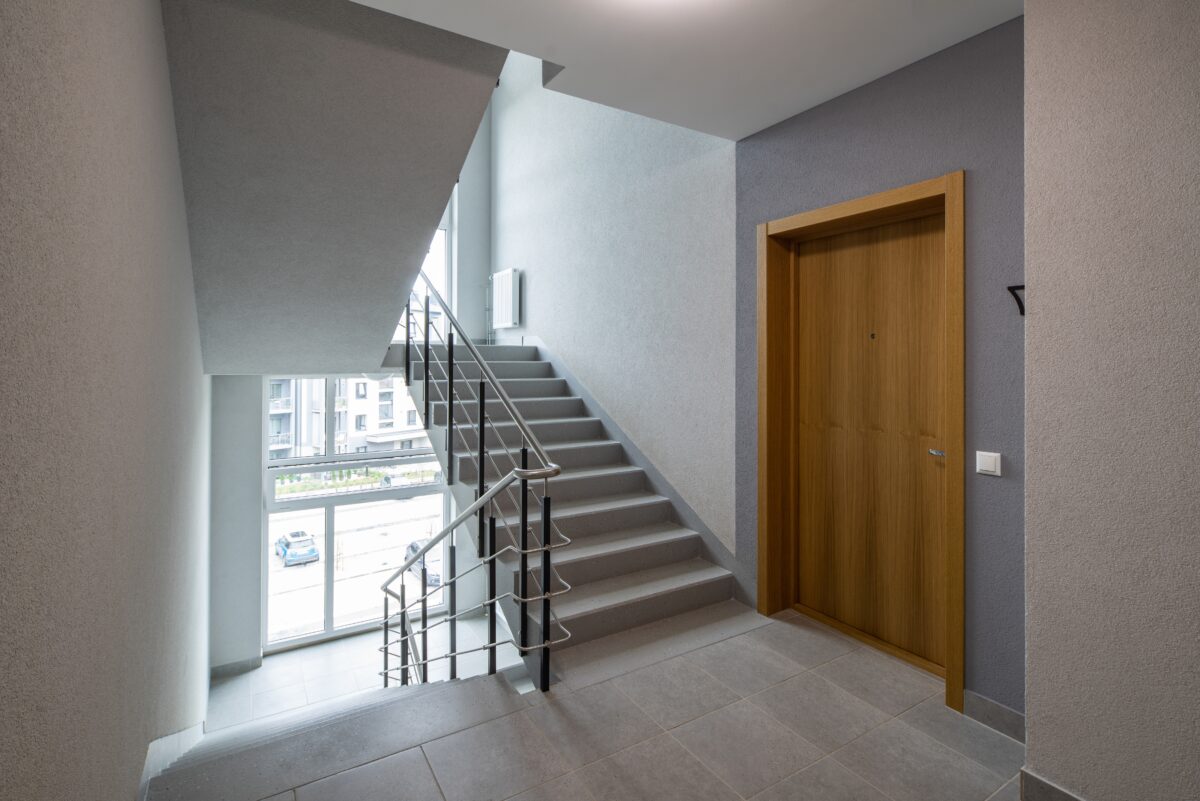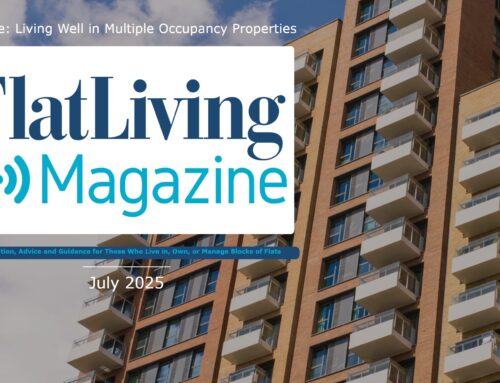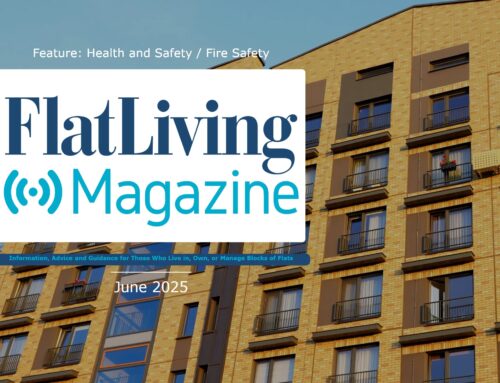Belinda Bagnall from Residentsline Insurance explains how shared spacess do not look after themselves and so clear expectations, routines and a sense of shared responsibility are needed to ensure their upkeep and how Residents’ Management Companies (RMC) play a vital role in this.
Car parks, gardens, hallways and lifts. These areas are seen first when residents and guests arrive, so they influence their opinion of the block and how it is managed.
Keeping shared spaces clean, safe and aesthetically pleasant is not just about appearances. It is about providing a sense of safety, pride and comfort. It also goes a long way when it comes to maintaining property value.
You are not only responsible for arranging maintenance and cleaning, but also for setting the tone for respectful use of communal areas.
Why Shared Spaces Matter
First impressions count. When a hallway is clean and well-lit, or a garden is tidy and inviting, it reflects positively on the building. It can even affect the value of individual flats. On the other hand, overflowing bins, damaged paintwork and neglected gardens suggest poor management and can lead to complaints.
More importantly, shared spaces impact the safety of the property. Blocked stairwells and poorly lit corridors are a hazard. Untidy areas may also affect fire safety or access for emergency services.
Shared areas have the power to build or break community spirit. A clean, well-used patio or garden can become a place for neighbourly chats or summer get togethers. It may also inspire a sense of pride that in itself, improves the care and attention paid throughout the block. A neglected space may somewhere everyone avoids.
The Role of the RMC
The RMC’s job is to lead by example. This should include:
- Organising regular cleaning and maintenance contracts
- Setting clear rules and guidance for the use of shared areas
- Communicating expectations to residents
- Encouraging respectful behaviour through signage or newsletters
- Responding to concerns quickly and fairly
It is also important that the RMC creates opportunities for residents to get involved. When people feel a sense of ownership, they are more likely to keep things tidy and treat shared spaces with care.
Hallways and Stairwells
Hallways should be kept clear, well-lit and clean. These are escape routes in case of fire, so blockages and obstacles are unacceptable. RMCs should remind residents not to leave shoes, bikes, pushchairs or parcels in the corridors.
Good practice includes weekly cleaning of floors, walls and light switches, and general maintenance such prompt attention to any decorating and repairs. installation of notices reminding residents not to store personal items in common areas and checking that fire doors are unobstructed and closing properly. Residents need to know how and be encouraged to report any damage or spills so issues can be dealt with quickly.
Lifts
Lifts can quickly become dirty or damaged. They are also a high-contact area, so hygiene is important. Simple steps for lift care include:
- Regular cleaning of flooring, buttons, handrails and mirrors
- Signs encouraging residents to report faults
- Routine servicing to reduce downtime and hazards
Residents should be asked to take care when moving large items and to avoid wedging doors open or leaving any mess behind.
Gardens and Patios
Gardens and patios should be an asset to the building. Even a small space can provide a place to relax or socialise. Keeping these areas tidy, safe and welcoming requires regular attention.
Grassed areas, hedges trees and shrubs should be well maintained with no branches or growth which might cause injury and paths should be swept and kept free of moss and algae. Any litter should be removed promptly, with residents expected to clean up after themselves. Seasonal planting schedules provide flowers for some colour, and if there is a communal patio, adding outdoor furniture can be a great feature. If space is limited, a few carefully placed pot plants can make a space more inviting.
Clear signage should be in place to convey rules around usage, smoking, noise and pets.
Garage Blocks
Garages and car parks are often overlooked. A well-maintained garage area helps prevent damage to vehicles and discourages fly-tipping or vandalism. Make sure lighting and motion sensors are working. Check for and remove litter regularly and check for signs of leaks or pest activity. Doorways should be kept clear, signage should be clean and legible and any mechanisms (garage doors etc.) and security measures should be in good working order.
Creating a Shared Garden or Vegetable Patch
A shared vegetable garden can be a great way to build community spirit. Even a small, raised bed is an area to grow herbs, and suitable vegetables. If space allows, you could also include compost bins for garden and/or food waste.
A tool-sharing scheme can improve accessibility by reducing cost barriers. You could draw up a rota for usage and provide labelling for the different plants. Our top tip here would be to make sure responsibilities are clear. A rota for watering and weeding helps prevent disputes.
Encouraging Respectful Use
To keep shared spaces welcoming, it helps to encourage a cooperative approach. Here are a few simple ways to promote good etiquette:
- Share reminders in newsletters or group chats about communal area rules
- Offer praise for residents who contribute positively (e.g. sweeping the steps or watering plants)
- Use polite notices along the lines of “thank you for keeping this area tidy” or “please don’t leave rubbish here” rather than harsh signage
If someone continually ignores the rules, address it in a firm but fair way. Start with a polite note or conversation before moving to formal warnings. Keep communication calm and focussed on finding a solution.
Maintenance Schedules and Cleaning Contracts
Good cleaning, maintenance procedures, and any associated contracts are essential. Make sure:
- There is a clear schedule and scope of works
- Cleaners know which areas are included
- Residents know how to report issues or missed visits
- Periodic deep cleans are arranged for carpets, windows, or pressure washing
Review contracts regularly to make sure standards remain high.
In Summary
Keeping shared areas clean and inviting is not just the job of a cleaner or a contractor. It is a shared effort that involves cooperation between the RMC, contractors and residents. When everyone understands their role, buildings feel more like home.
RMCs should lead by example, offering guidance and responding quickly to any issues reported. But residents also need to play their part – together, you can create a living space that is clean, safe and welcoming for all. Shared spaces reflect shared values. When everyone contributes, everyone benefits.




Leave A Comment